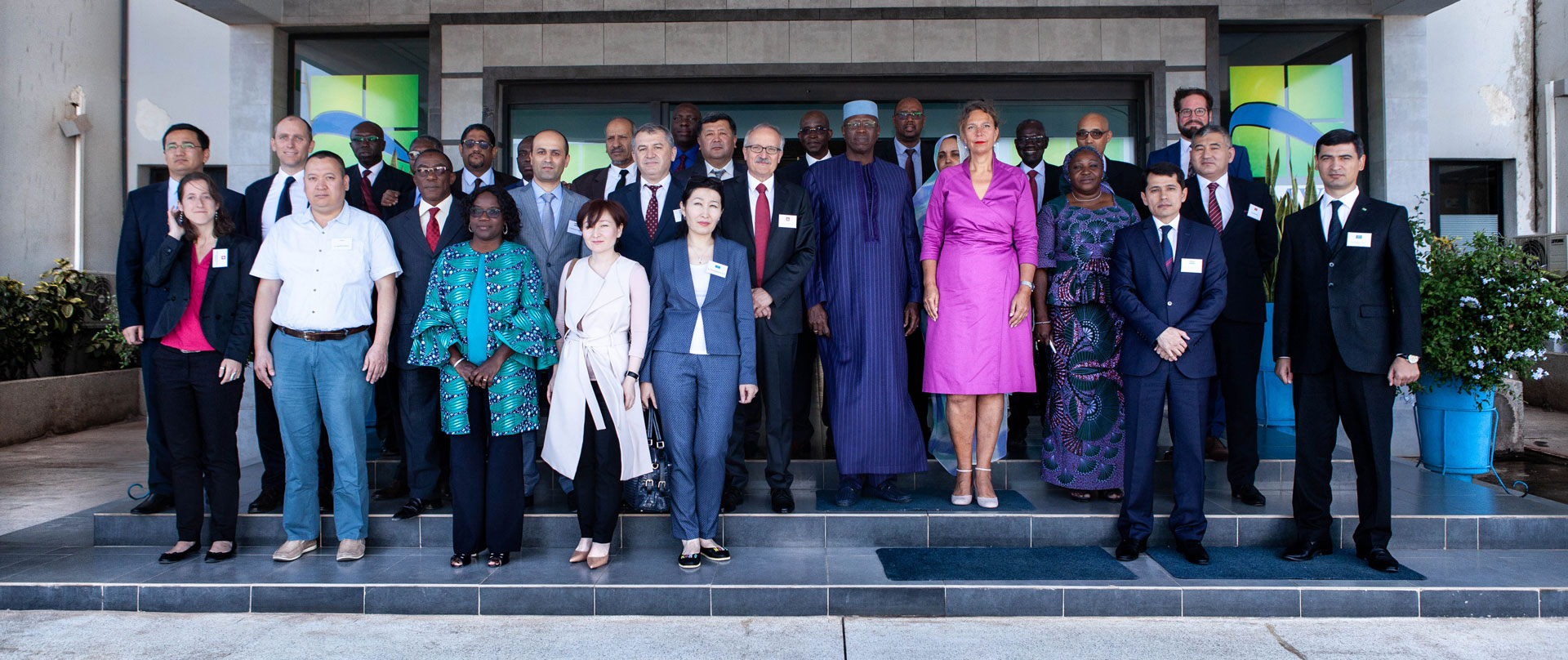
Representatives of the Ministries of Foreign Affairs and Water Ministries of Central Asian countries took part in a working visit to study the experience of the Senegal River Basin Development Authority (OMVS). The trip took place from April 29 to May 4 as part of the Blue Peace Central Asia High-Level Dialogue Platform, which is funded and implemented by the Swiss Agency for International Cooperation SDC. The stage tour was held with the technical support of CAREC, which acts as the secretariat of the High-Level Dialogue Platform, and with the assistance of the Swiss Embassy in the Republic of Senegal and ORBS.
The OMVS unites Guinea, Mauritania, Mali and Senegal with a view to jointly manage the water resources of the basin of transboundary river Senegal. The organization was founded in 1971 as a joint commission with a head office in Dakar, the capital of Senegal. Regional cooperation is based on the understanding that the water resources of the Senegal River are the common property of all countries in the basin.
During the presentations from the specialists of the OMVS, the participants of the tour learned in details about the activities of the organization. It was noted that the countries of the basin recognized the equal rights of each other in the management of water resources and are trying to make decisions beneficial to all parties. The agreements underlying OMVS establish the international status of the Senegal River and its tributaries, as well as the corresponding infrastructure, as "joint, indivisible property of the member states". What means the joint lending for development purposes, joint guarantee of reimbursement of borrowed funds and interest rates; joint management of common infrastructure and assets.
In developing the formula for the distribution of the economic burden, the member countries of the OMVS used an economic model that shares the infrastructure costs and benefits obtained by each country. Under the OMVS, the costs are borne by the relevant sectors of the economy and the country according to the benefits obtained. Water is divided between the countries concerned, not by volume, but rather by development sectors, but the whole basin is treated as a single economic unit. The system aims to maximize benefits for different sectors. The member countries of the OMVS use an economic model that shares the infrastructure costs and benefits received by each of the stakeholders.
This approach led to a unique dynamic of the situation. The countries formed a common vision for the development of the Senegal River basin; sustainable management structure: 6 permanent bodies with clear powers and functions; legal system. All decisions are based on consensus and taken collectively.

As part of the working visit, delegations from Central Asian countries also visited some of the joint hydraulic structures: the Diama dam, which serves as a barrier to the penetration of saltwater and regulates water for irrigation; and the Aftout Es-Saheli pumping station, which is located in Mauritania and is used for drinking water. In total, three dams with a total capacity of 320 MW are installed in the Senegal basin, which are capable of regulating 11 billion m3 of water.
Regulation of 40% of river flow allows to prevent natural disasters, generate 800 GW / year of hydropower and fight salinization in the delta. Also, the OMWS’s approach to water management makes it possible to provide irrigation for 43,000 hectares of land, benefiting 110,000 people. Moreover, the resources of the Senegal River completely cover the drinking water needs of the capital of Mauritania, Nouakchott, and provide half of the need for the capital of Senegal, Dakar.
Attention was drawn to the fact that employees and partners of the OMVS have the opportunity to cross borders freely due to visa support. A delegation from Central Asia, for example, crossed the border between Senegal and Mauritania during the visit. This freedom of movement is also of great importance in the management of transboundary resources.
Of course, not all issues in the region have been resolved, challenges still exist - financing, access to financial capital, invasive plant species, the spread of diseases and water quality. But the experience of successful cooperation in 45 years shows that countries will be able to find suitable solutions.
